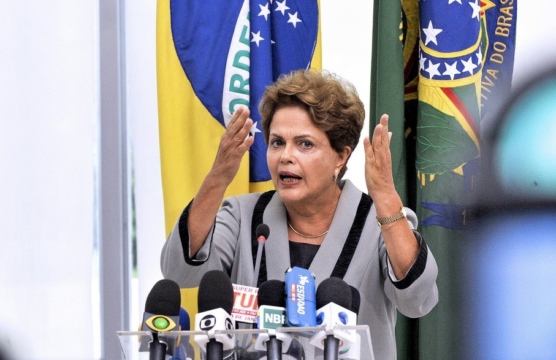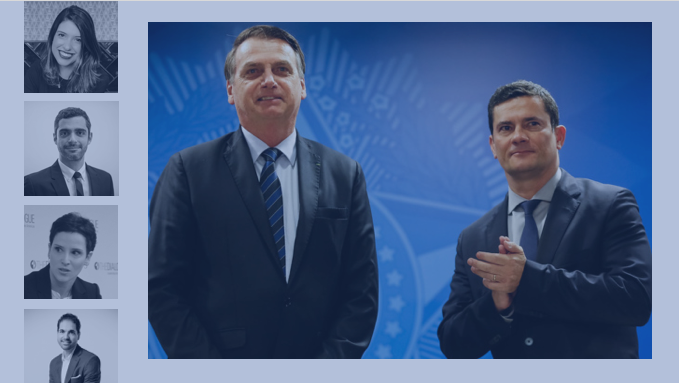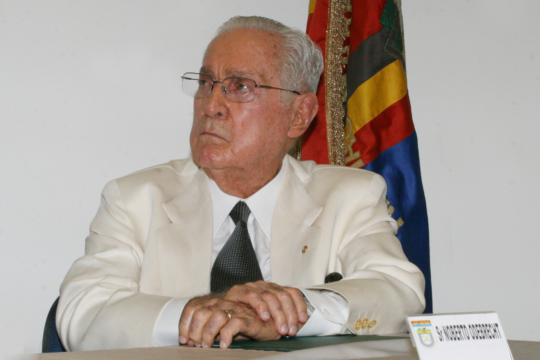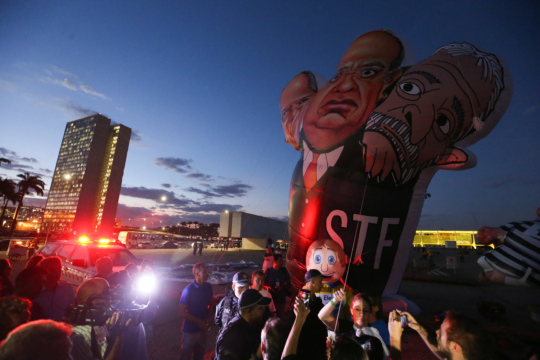
Brazil’s Challenges and Dilma’s Choices
President Dilma Rousseff, a political neophyte when she was took office in 2011, had a rough first term.
On May 7, 2020, the Inter-American Dialogue hosted “Beleaguered Brazil,” a webinar featuring Beatriz Bulla, Washington correspondent for O Estado de S. Paulo, Bruno Boghossian, columnist for Folha de S. Paulo, and Monica de Bolle, senior fellow at the Peterson Institute for International Economics (PIIE). The event was moderated by Michael Camilleri, director of the Peter D. Bell Rule of Law Program. The discussion focused on recent developments in Brazil, such as the resignation of Sérgio Moro as justice minister, Moro's accusations against President Jair Bolsonaro, and the possible implications of Bolsonaro’s response to Covid-19 and its economic impacts.
Amidst Brazil’s continued battle with Covid-19, on April 24, Moro’s resignation and subsequent accusation against Bolsonaro of seeking to control the federal police shook the country's political arena. Bulla noted that Moro’s resignation is no normal departure. Instead, the former justice minister resigned in protest, claiming that Bolsonaro is attempting to obstruct ongoing investigations into his son by appointing his own police chief in Rio de Janeiro. Boghossian outlined the potential criminal investigations and impeachment process against Bolsonaro, and explained that the President had begun forging new bonds with Congress to survive the possible impeachment. Moro's resignation had forced the president to accelerate these negotiations, and Boghossian suggested that there is evidence Bolsonaro’s efforts may prove successful. Following Moro’s resignation, the leaders of Centrão said that they were not interested in an impeachment process. Boghossian described their logic, saying the leaders thought “that the country needed stability and it would be too dramatic for the country to face.” Bolsonaro's ability to maintain the support of about a third of the population even after Moro's resignation, Bulla noted, puts him in a comfortable position to negotiate with Centrão. However, Bulla further conveyed that Centrão may not be reliable and that these negotiations depend on the evidence that emerges from the investigation. Looking forward, for criminal charges to proceed and for the president to be formally prosecuted in the supreme court, two-thirds of the chamber of deputies need to approve.
Bolsonaro’s administration is also facing harsh criticism for mishandling the response to the pandemic and its economic impact. De Bolle called the administration's handling “absolutely catastrophic” and explained that its measures were unsuccessful because of Bolsonaro’s continuous efforts to undermine local government response to contain the virus. Even though Brazil’s public health system is strong, de Bolle raised the concern that the distribution of health resources is heterogeneous across the country, and added that Bolsonaro’s firing of the previous health minister was a shock to the system. Without a change of course, Brazil is heading towards becoming the epicenter of the epidemic in the next few weeks. The administration's economic response has also been criticized. De Bolle clarified that despite Congress’ passage of monetary stimulus measures, the executive branch and Economic Minister Paulo Guedes are still in denial that the economic crisis will persist in the wake of Covid-19. She indicated that the 5.3 percent contraction estimate in GDP that the IMF released is already outdated and that it could be as high as a “double-digit contraction in Brazil in 2020 with double-digit unemployment as well.” There is a lack of understanding within the government of how deep the crisis is, and any response by the administration cannot be based on the economic crisis alone as this emergency stems from the public health crisis.
The event ended with questions from the audience about Bolsonaro’s relationship with President Donald Trump and the extent to which their responses to the pandemic may be intertwined, the emergency basic income package Brazil's Congress recently passed, and the legacy Moro leaves behind.
President Dilma Rousseff, a political neophyte when she was took office in 2011, had a rough first term.
Las proporciones del caso Odebrecht han puesto de manifiesto una red de sobornos para obtener licitaciones de obras públicas, que implica prácticamente a una docena de países y que compromete a buena parte de la clase política latinoamericana, al más alto nivel. Peter Hakim comenta sobre el caso.
An interview with Peter Hakim about the impacts of Lava Jato, Brazil’s political polarization, and the country’s role in the international community
 Main Photo: Flickr / Carolina Antunes/PR / CC BY 2.0
Main Photo: Flickr / Carolina Antunes/PR / CC BY 2.0

